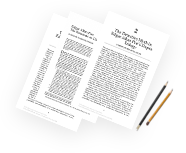LEGAL AND ETHICAL ISSUES RELATED TO PSYCHIATRIC EMERGENCIES
The diagnosis of psychiatric emergencies can include a wide range of problems—from serious drug reactions to abuse and suicidal ideation/behaviors. Regardless of care setting, the PMHNP must know how to address emergencies, coordinate care with other members of the health care team and law enforcement officials (when indicated), and effectively communicate with family members who are often overwhelmed in emergency situations. In their role, PMHNPs can ensure a smooth transition from emergency mental health care to follow-up care, and also bridge the physical–mental health divide in healthcare.
In this week’s Assignment, you explore legal and ethical issues surrounding psychiatric emergencies, and identify evidence-based suicide and violence risk assessments.
TO PREPARE
Review this week’s Learning Resources and consider the insights they provide about psychiatric emergencies and the ethical and legal issues surrounding these events.
RESOURCES
Be sure to review the Learning Resources before completing this activity.
Click the weekly resources link to access the resources.
THE ASSIGNMENT
In 2–3 pages, address the following:
Explain your state laws for involuntary psychiatric holds for child and adult psychiatric emergencies. Include who can hold a patient and for how long, who can release the emergency hold, and who can pick up the patient after a hold is released.
Explain the differences among emergency hospitalization for evaluation/psychiatric hold, inpatient commitment, and outpatient commitment in your state.
Explain the difference between capacity and competency in mental health contexts.
Select one of the following topics, and explain one legal issue and one ethical issue related to this topic that may apply within the context of treating psychiatric emergencies: patient autonomy, EMTALA, confidentiality, HIPAA privacy rule, HIPAA security rule, protected information, legal gun ownership, career obstacles (security clearances/background checks), and payer source.
Identify one evidence-based suicide risk assessment that you could use to screen patients.
Identify one evidence-based violence risk assessment that you could use to screen patients.
Expert Solution Preview
Introduction:
Psychiatric emergencies pose unique legal and ethical challenges for healthcare professionals, particularly in managing patient care, ensuring patient safety, and respecting patient rights. In this assignment, we will explore the legal and ethical issues surrounding psychiatric emergencies and discuss evidence-based suicide and violence risk assessments. Additionally, we will examine state laws regarding involuntary psychiatric holds, emergency hospitalization for evaluation/psychiatric hold, inpatient commitment, and outpatient commitment. Finally, we will address the differences between capacity and competency in mental health contexts and discuss legal and ethical issues related to specific topics in treating psychiatric emergencies.
1. Explain your state laws for involuntary psychiatric holds for child and adult psychiatric emergencies. Include who can hold a patient and for how long, who can release the emergency hold, and who can pick up the patient after a hold is released.
(State-specific answer required)
2. Explain the differences among emergency hospitalization for evaluation/psychiatric hold, inpatient commitment, and outpatient commitment in your state.
(State-specific answer required)
3. Explain the difference between capacity and competency in mental health contexts.
In mental health contexts, capacity refers to an individual’s ability to understand and make informed decisions about their medical treatment or other important aspects of their life. It relates specifically to a person’s ability to comprehend the relevant information, appreciate the consequences of their decisions, and communicate their preferences. Competency, on the other hand, is a legal term that pertains to a person’s ability to participate in legal proceedings and make decisions related to their legal rights. Competency evaluations focus on a person’s mental state and cognitive abilities to determine whether they can understand the legal proceedings and assist in their defense or participate in legal decision-making.
4. Select one of the following topics and explain one legal issue and one ethical issue related to this topic that may apply within the context of treating psychiatric emergencies: patient autonomy, EMTALA, confidentiality, HIPAA privacy rule, HIPAA security rule, protected information, legal gun ownership, career obstacles (security clearances/background checks), and payer source.
Topic: HIPAA privacy rule
Legal Issue: One legal issue related to the HIPAA privacy rule is ensuring the proper safeguarding of patient health information and preventing unauthorized access or disclosure. Healthcare providers must adhere to strict regulations to maintain patient privacy and protect sensitive medical information from being shared improperly or unlawfully.
Ethical Issue: An ethical issue related to the HIPAA privacy rule is balancing the need for patient privacy with the duty to provide necessary information to ensure patient safety. Healthcare professionals may face ethical dilemmas when they have information that could potentially harm the patient or others if not disclosed, but they are bound by the HIPAA privacy rule to maintain confidentiality unless permitted or required by law.
5. Identify one evidence-based suicide risk assessment that you could use to screen patients.
One evidence-based suicide risk assessment that could be used to screen patients is the Columbia-Suicide Severity Rating Scale (C-SSRS). This tool has been widely validated and is designed to assess an individual’s severity of suicidal ideation and behavior, allowing healthcare professionals to determine appropriate intervention and follow-up care.
6. Identify one evidence-based violence risk assessment that you could use to screen patients.
One evidence-based violence risk assessment that could be used to screen patients is the HCR-20 (Historical Clinical Risk Management-20). This comprehensive tool assesses an individual’s risk for violence by evaluating both historical factors (e.g., past violent behavior, history of psychiatric hospitalizations) and clinical factors (e.g., current symptoms, stressors, insight). It provides a structured framework for evaluating violence risk and informing risk management strategies.




